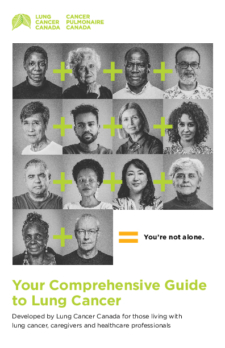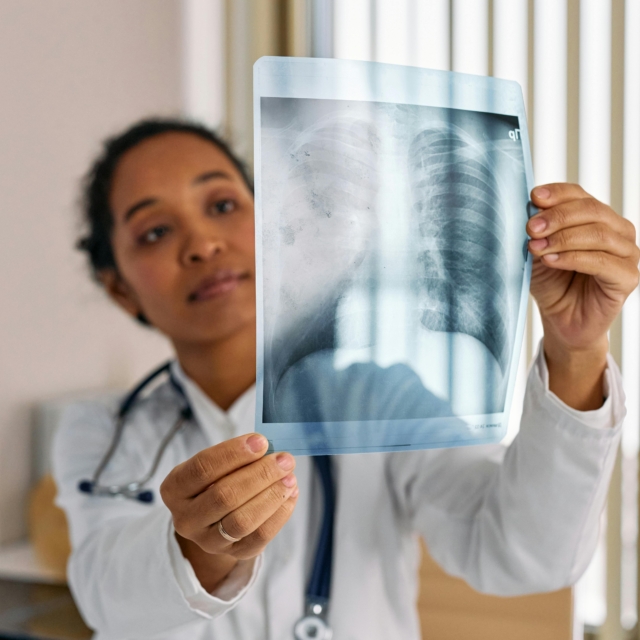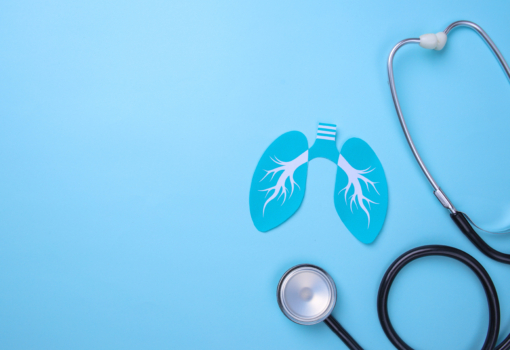About Lung Cancer
Each year, more than 32,0001 Canadians will be confronted with a diagnosis of lung cancer.
It’s a disease that doesn’t discriminate, affecting both smokers and non-smokers, men and women, young and old, across all walks of life. While tobacco use remains the overwhelming leading cause of lung cancer, anyone with lungs can get lung cancer.
Lung cancer occurs when cells of the tissue of the lungs grow out of control. As the cancer grows, it can form a tumor and interfere with the normal functioning of the lungs, including their ability to provide oxygen to the bloodstream. It can also break away from the original mass and spread to other parts of the body (metastasis).
Lung cancer often has no symptoms until it has spread. This is because there are few specialized nerves, or pain receptors, in the lungs. When symptoms do occur, they vary depending on the type of lung cancer and location and size of the tumor. A series of tests are necessary to diagnose lung cancer. Further testing can identify the type and stage of cancer, which help determine treatment options.
There are several different types of lung cancer, each made up of different types of abnormal cells.













